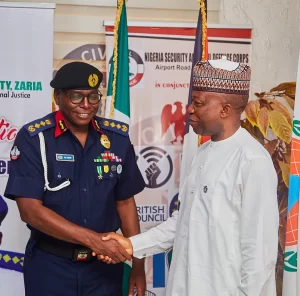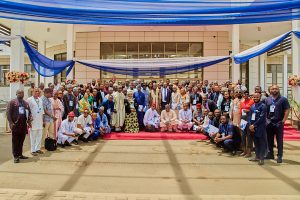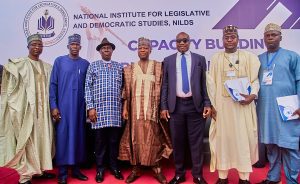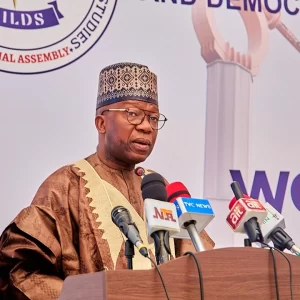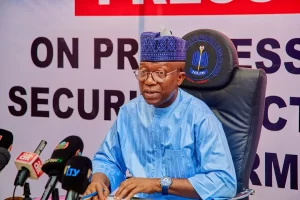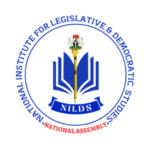

Legislative Institute Seeks Collective Efforts to Strengthen Democracy
The National Institute for Legislative and Democratic Studies (NILDS) is seeking efforts of stakeholders at strengthening Nigeria’s democracy.
Director-General of the institute, Prof. Abubakar Sulaiman, expressed the desire at the capacity building workshop for members of the Plateau State House of Assembly held on Wednesday in Abuja.
The event was jointly organised by NILDS and KONRAD Adenauer Stiftung.
Sulaiman, who stated that Nigeria’s democracy was still fragile, called for collective measures to strengthen the democratic and processes.
On the crisis that saw the removal of
Abok Ayuba, as Speaker, Plateau State House of Assembly, Sulaiman said that the event “was not alien” to democratic growth and development.
“The leadership crisis that resulted in the removal of the former speaker and the inauguration of the current speaker and the fallouts of these developments are not alien to democratic growth and consolidation especially in emerging democracies,” he said.
He explained that such crisis compelled stakeholders to reflect on building legislative institution in the country.
“Some of the most serious issues we need to address include those relating to the procedure for removing presiding officers as contained in the Standing Orders as well as improving transparency in our processes,” he said.
He, however, noted that the legislature had achieved some major milestones which included the passage of the Electoral Act (2022) and the signing of the Act by President Muhammadu Buhari.
“Several of the innovative provisions in the Act have been lauded and tipped to potentially result in significant improvements in the electoral process.
“For instance, the legal backing given to the use of Smart Card Reader (SCR) by INEC as well as the legal backing to electronic transmission of results from Polling Units can lead to greater transparency to our electoral process,” he said.
On his part, the Speaker, Plateau State House of Assembly, Yakubu Sanda, noted that the assembly in the state had full financial autonomy.
“We operate on our own. We do not have any problem as long as financial autonomy is concerned.”
On the declaration of the seat of the former speaker vacant, Sanda said: “You are aware that the Constitution is very clear on this; that if a person had the mandate of a political party to take a position, by the time you move to another party, you vacate your office.
“The assembly is stabilised now there is no crisis in the assembly,” he said.
In his remarks, KONRAD’s Resident Representative, Dr Vladimir Kreck, said that part of the organisation’s interventions in Nigeria had been to support state houses of assembly by assisting them fulfil their legislative assignment.
On financial autonomy of the legislature, Kreck said that it was absolutely necessary that state houses of assembly were financially autonomous.
“It is necessary for them to be independent from other tiers of government. If one of the tiers of government is dependent on the other, they can’t function optimally,” Kreck said.
Credit: (NAN)
(www.nannews.ng)



